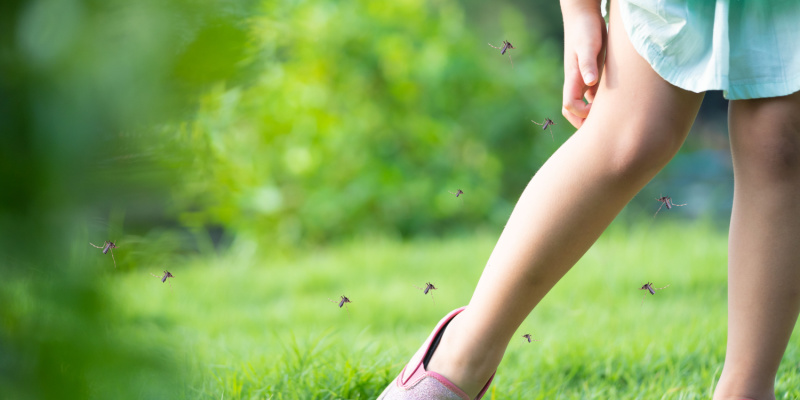In the serene suburbs of Pickerington, OH, residents often find themselves asking a common yet frustrating question: “Why are mosquitoes invading my yard?” Understanding the reasons behind this invasion is crucial for reclaiming your outdoor spaces from these unwelcome guests. Mosquitoes are not just a nuisance; they are vectors for various diseases, making their control a matter of public health as well as personal comfort. There are things you can do on your own and ways to get help with the common issue of mosquitoes.
The Allure of Standing Water
Mosquitoes are aquatic insects during their larval and pupal stages, relying on stagnant or slow-moving water to develop. Your yard might unwittingly be providing the perfect breeding ground for these insects. It’s not just ponds or pools that attract them; mosquitoes can breed in any stagnant water that lasts for more than a week. This includes rainwater collected in empty containers, bird baths, clogged gutters, and even the small amount of water collected on a leaf or an overfilled plant saucer. Regular inspection and elimination of these water sources are vital steps in reducing your yard’s attractiveness to mosquitoes.
The Comfort of Lush Vegetation
Pickerington’s lush landscapes, while beautiful, can also contribute to mosquito problems. Mosquitoes seek shelter from the heat in dense foliage, emerging at dusk or dawn to feed. Your garden’s thick shrubs, tall grasses, and heavy underbrush provide not just shelter but also a cooler environment for these pests. Regular garden maintenance, such as mowing the lawn, trimming bushes, and clearing out dead vegetation, can disrupt these hiding spots, making your yard less inviting.
Carbon Dioxide and Body Heat: A Mosquito Magnet
Humans and animals exhale carbon dioxide, which mosquitoes use as a primary cue to locate their next meal. Additionally, body heat and specific odors from sweat can attract mosquitoes. Outdoor gatherings, especially during the evening when mosquitoes are most active, can quickly turn into a feast for these pests. Reducing the time spent outdoors during peak mosquito hours and using repellents can help minimize bites.
Light Attraction
Mosquitoes are also drawn to certain types of light. While not as significant a factor as carbon dioxide or standing water, the lights around your patio or garden can attract mosquitoes to your yard. Consider using yellow “bug lights” or LED lighting, which are less attractive to mosquitoes, to reduce their presence around your outdoor living spaces.
Solutions and Prevention
1. Water Management:
Diligently empty and clean containers that hold water on a weekly basis. Modify your landscaping to prevent water accumulation, ensuring proper drainage throughout your yard.
2. Vegetation Control:
Adopt a less is more approach with your landscaping. Use plant species that require less water and provide fewer hiding spots for mosquitoes.
3. Personal Protection:
When spending time outdoors, especially during peak mosquito activity times, use EPA-approved insect repellents and wear long sleeves and pants to minimize exposed skin.
4. Professional Mosquito Control Services:
For persistent mosquito problems, consider hiring a professional mosquito control service. These experts can offer tailored solutions, including barrier sprays and larvicide treatments, to significantly reduce mosquito populations in your yard.
Understanding why mosquitoes are attracted to your yard is the first step in creating a comprehensive mosquito management plan. By addressing standing water, managing vegetation, and employing both personal protective measures and professional services, you can significantly reduce the mosquito population in your outdoor spaces, making your yard a more pleasant place to live, play, and relax.
With these strategies, residents of Pickerington, OH, can look forward to enjoying their outdoor spaces with fewer interruptions from these buzzing intruders. Remember, combating mosquitoes is a community effort; working together with neighbors to address these common attractants can lead to more effective control throughout the area.

